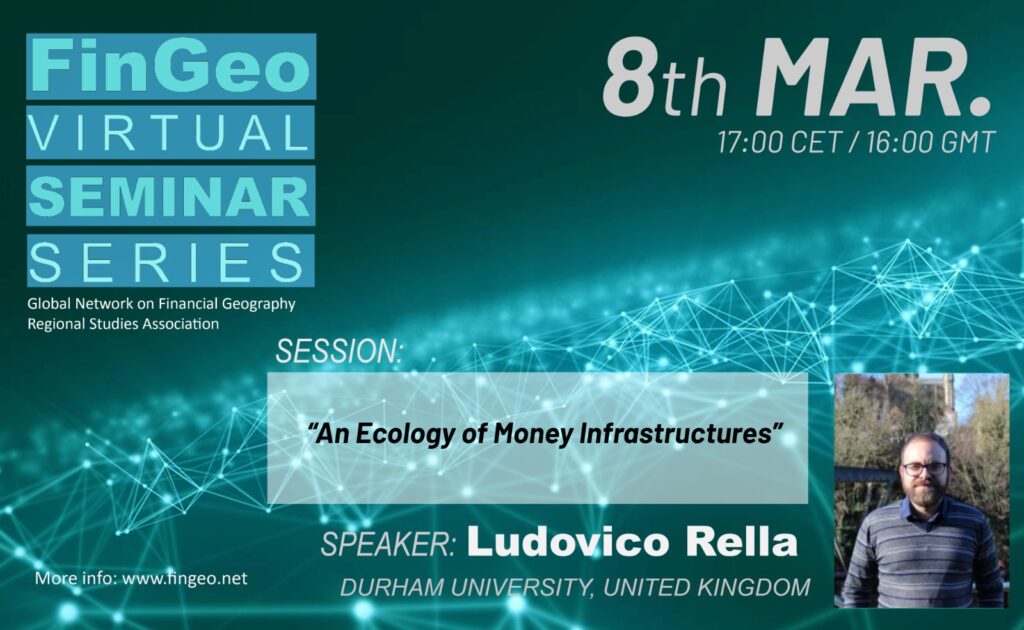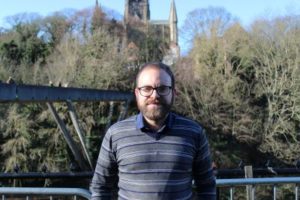
This paper proposes an investigation of blockchain technologies – understood as money infrastructures – from the point of view of the ecologies that these infrastructures produce. In fact, infrastructures scholar Susan Leigh Star described infrastructures as fundamentally ecological, i.e. fluid and highly power-fraught technological apparatuses (Star 1995; Coeckelbergh 2013). The concept of ecology also highlights the interplay between materialities and cultures, practices, imaginaries, mystics, and affects in determining an infrastructure’s disposition (Easterling 2014). The concept of ecology also has a history in financial geography: ecology, understood more as “ecological niche” has allowed to investigate financial networks and communities in a way that is context-specific and place-specific, variegated and highly contingent (Lai 2016; Leyshon et al. 2004; 2006; Langley and Leyshon 2017). Combining these two strands of literature, then, this paper explores the birth and expansion of blockchain industries with an eye on the processes of co-evolution of these technologies alongside other technological innovations – e.g., FinTech, alternative monetary systems, and “legacy” payment infrastructures. It also illustrates the geographically diverse landscape of regulatory interventions and industrial consolidations. It, finally, explores the role of cultures, stories, and discourses – what Çalışkan (2020) calls “intangible materiality” of payment infrastructures and platforms – in shaping this industry.
Speaker: Ludovico Rella, Durahm University, UK

Ludovico studied in Florence, Lund, and Durham, and he currently is a Postdoctoral Research Associate in the ERC project Algorithmic Societies, Ethical Lives in the Machine Learning Age, at the Department of Geography at Durham University. His doctoral research focused on the intersection between economic geography of money and finance, digital geography, social theory of money, cultural and political economy, and science and technology studies of infrastructures, and it developed an infrastructural conceptualization of money to capture the spatial and political dimension of money’s circulation. He published in English and Italian in the International Encyclopedia of Human Geography, Journal of Cultural Economy, Frontiers in Blockchain, Esercizi Filosofici. His current research covers macro-economic applications of Machine Learning and Artificial Intelligence, and the relationship between Machine Learning models, software, and hardware.
Register here
